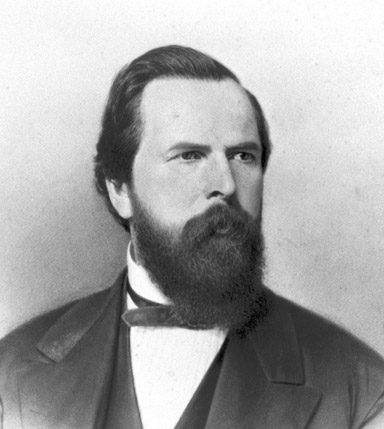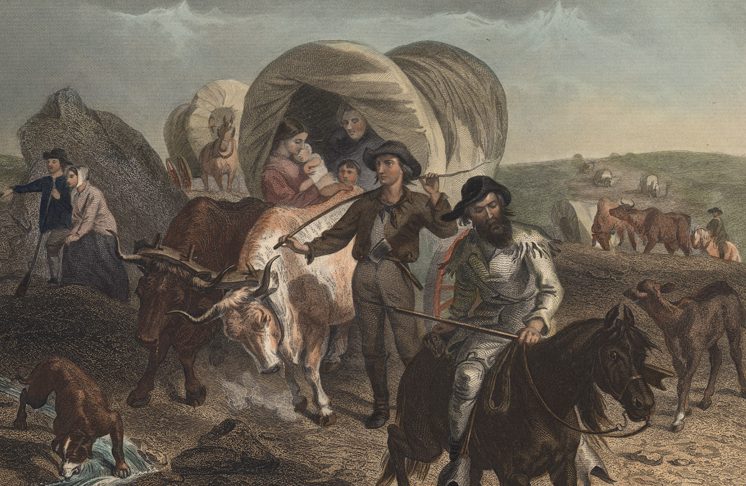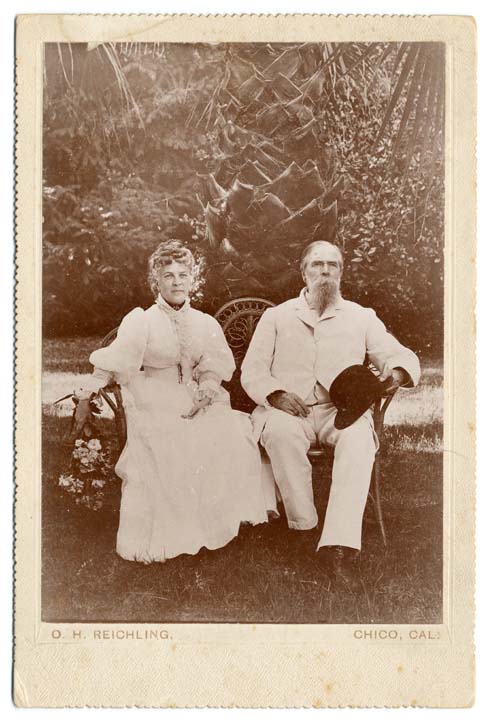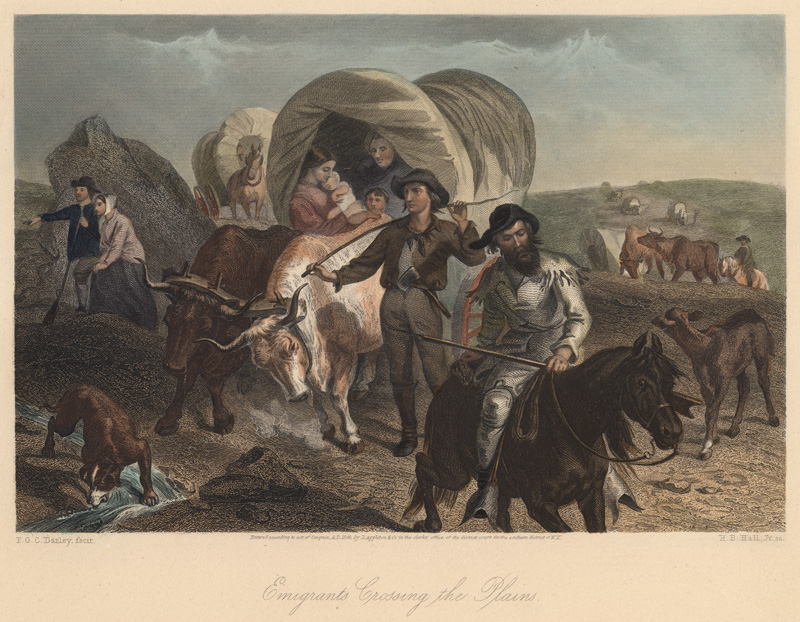A group of 70 men, women and children in 15 wagons sets out on May 15, 1841 from near Independence, Missouri for points west. In Idaho, the group divides and 32 persons and nine wagons follow John Bartleson and John Bidwell southwest from the Oregon Trail into uncharted territory that the group hopes leads to California.
Bidwell, 22, keeps a detailed journal, which becomes a guide to future emigrants. The group logs 10 to 15 miles each day. The farther west they go, the more their hardships mount.
Water becomes scarce. Bidwell recounts shooting rabbits and killing oxen teams for food. Eventually, the wagons are abandoned and the group goes forward on foot and horseback.
They labor up into the Sierra Nevada and come down through the Sonora Pass, arriving November 4 at their destination, the ranch of Dr. John Marsh, near Mt. Diablo in present day Contra Costa County. Marsh had written letters east urging settlers to journey to California.

The 32 new Californians have traveled more than 1,730 miles over five and a half months. Prior to their arrival, the white population of California is estimated at 100. Buoyed by the Bidwell-Bartleson party’s success, wagon trains grow in size and number each subsequent year.
Bidwell is a major figure in early California statehood. He’s employed for a time by John Sutter and brings news of the discovery of gold to San Francisco. An amateur botanist who introduces casaba melons to the state, Bidwell also serves a term as California’s representative to Congress in 1865.
A candidate for governor in 1875 for the Anti-Monopoly Party and the presidential candidate of the Prohibition Party in 1892, he dies in 1900 at age 81 in the city of Chico, which he founds in 1860.
Bidwell donated eight acres of his cherry orchard in the 1880s to a teacher’s college called Chico State Normal School — now California State University, Chico.



